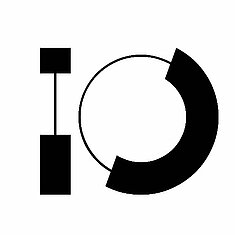New computer chip will bring AI into our daily lives

The winners of the Gerard and Anton Awards are highlighted. Today: Axelera AI.
Artificial Intelligence (AI) is the future, but before we can, use this technology in our daily lives, we need faster, cheaper and more efficient hardware. Start-up Axelera AI has developed a test chip to solve this problem: the Thetis Core. A computer chip with fast memory that will make it possible to use AI like never before. The start-up is just over a year old, but has grown rapidly and plans to announce the first version of the chip in the last quarter of 2022. Just last week, the young company received a Gerard & Anton Award for their revolutionary chip. In this episode of start-up-of-the-day, co-founder and CEO Fabrizio del Maffeo talks about his innovative product.
What is the Thetis Chip?
"To understand Thetis, I want to start with the AI problem. Artificial intelligence and in particular neural networks are very different from other algorithms. If you look in this network, you'll see that a lot of the operations are vector-matrix multiplications: you multiply a vector, which is a column of numbers, by a table of numbers. This represents 70 to 90 percent of all the calculations the hardware has to perform. The rest are more sophisticated calculations. Our technology, a memory computer chip, can speed up this process to make it more efficient. Our chip instantly makes all the calculations in one cycle. Usually a computer can do 16 or 32 calculations per cycle. Our test chip can do 260,000 calculations in one cycle. That's because we do the calculation in memory itself. We only modify the memory to perform this simple calculation of multiplication and addition, which speeds up the process."
Who can benefit from this chip?
"Our chip delivers high performance and usability at a fraction of the cost of what is on the market today. We want to create a technology that is accessible to everyone. Primarily for device designers. They need high performance to scale up their applications. That could be medical devices, for example. After that, I would say almost everyone is going to benefit. We want to enable a thousand startups and established companies to scale and apply performance in AI with a powerful tool. For example, you can put real intelligence into drones to monitor crops or even fires. Or you can store and pay without stopping at the cash register. The possibilities are endless."

When did you start the company?
"We started on July 9, 2021. We got our investments and from then on we started scaling very quickly. The idea started back in 2017. I was an engineer for computer companies for almost 20 years, with different roles from development to management. I started looking at the trend of bringing AI from the cloud to devices. I saw that there was a growing demand and interest in a solution to accelerate this process, so I started to see an opportunity in that. I then started talking to people and two years later the company was founded. Now we're going to make the product announcement this year. And we want to deliver the first version of the product to selected customers in the first half of next year."
What problems did you have to overcome to make this chip?
"We are bringing a new technology to the market and every day you discover something new. We are also doing this with a completely new team. So you have to build new technology and build a new team. A virtual team of people to keep together at a time when we had no money. I needed a hundred million to break even, and in Europe this kind of project is considered too ambitious. Many investors told me I was in the wrong place, that I should take a flight to the United States to try there. But we didn't give up and eventually we found investors. I'm still here. We now employ 75 people. Things have improved."
How difficult was it to get funding?
"It was extremely difficult and it's still extremely difficult to convince people to give you millions if you don't have a product. I don't want to minimize the work of other start-ups, but if you develop software, which most start-ups do, you can use that as proof of concept. To prove our concept, we needed ten million to begin with. We do have a theoretical simulation, but investors are always skeptical. We are also pitching for a market that is growing but not quite there yet. Everyone knows that this market will be big, but it's not there yet. So investors feel they have to wait. And we're competing with big companies, which is another problem."
What makes your product better than what's already on the market?
"It's the unique performance per area and power consumption. You can have high performance, at a fraction of the power consumption.Our chip is also cheaper than the rest. That way you can democratize AI and make it accessible to everyone."
After all, AI consumes a lot of power, so it's good to have a technology that is basically greener than others.
Fabrizio del Maffeo, co-founder and CEO
What is the ultimate goal?
"For us, that's spreading AI to make a safer, greener world. We strongly believe that AI can be used for good causes and that if we can spread AI, we can improve everyone's quality of life. You can save time because you can focus on things that create more value. And to achieve this goal, we need to democratize AI. Eventually, we will have given our technology to millions of companies and engineers so that they can use their creativity to harness the power of our chip to create new solutions. AI could truly change the whole world."
Read more about Axelera


